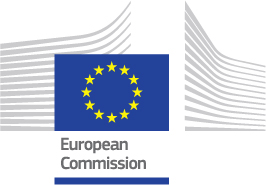Leveraging PISA insights to promote student well-being
Course details
It goes without saying that mental health, social interactions, and exposure to diverse cultures significantly influence students' well-being, preparedness for the future, and overall happiness. For this reason, educational systems all over the world acknowledge that education goes beyond mere grades. Although academic performance remains a common indicator for a school's success, it's no longer the sole criterion; happiness and overall well-being are now recognized as crucial factors as well.
Student well-being depends on many factors and schools play a key role to achieve it. Schools can support students to foster resilience, develop positive relationships with their peers and motivate students to strive for their best. Schools are also expected to be prepared to recognise and address issues such as students ‘mental health difficulties (e.g. depression), stress, or demotivation, as these can hinder both academic and future success. But how much do we know about student well-being and how to foster it at school? What should schools do to foster a caring school environment? And what does research tell us about it?
In this course, we will reflect on these and other questions by exploring key insights from The Program for International Student Assessment (PISA). PISA has consolidated data on student well-being through the PISA Happy Life Dashboard. The dashboard considers nine key aspects to student well-being including engagement with school, openness to diversity, psychological well-being, social relationships, and study-life balance.
The course is offered by the European School Education Platform. Visit our website for more information.
Duration and workload
Start date: Monday 8 April 2024
End date: Wednesday 24 April 2024
Duration: 2 weeks
Workload: 8-10 hours
Course competences
The recipient of this certificate has demonstrated proficiency of the following competences according to the digital competence framework of the European Commission's SELFIE for TEACHERs tool:
- Professional Learning through digital technologies B1 level
- Actively engaging learners B1 level
- Safety and well-being B2 level
Target audience
Primary and secondary teachers, and other school staff (e.g. nurses, counsellors) interested in enhancing their knowledge of well-being in the school environment and getting acquainted with key insights from the PISA Happy Life Dashboard.
Learning objectives
- Understand what wellbeing is, how it is measured through international research instruments (e.g. PISA) and how to foster it at school.
- Understand the purpose and importance of PISA in evaluating educational systems and how it relates to student well-being.
- Get acquainted with the well-being indicators used in PISA and the OECD well-being framework and reflect on their implications for student welfare.
- Understand the implications of students´ offline and online experiences for their well-being and reflect on the impact of these experiences for students’ well-being.
- Explore strategies to integrate well-being principles into the curriculum.
- Engage in collaborative activities, and group discussions to share and develop strategies for promoting student well-being at school.
This content is offered by the European Commission. The European Commission is the European Union's politically independent executive arm. It is alone responsible for drawing up proposals for new European legislation, and it implements the decisions of the European Parliament and the Council of the European Union.

Schedule
- How this course works
- Module 1: Introduction to PISA and Key Findings from PISA 2022
- Module 2: Fostering Children's Well-being: What have we learned from research?
- Module 3: Practical Strategies for Enhancing Student Well-being Based on PISA Insights and other Relevant Research
- Module 4: Final Assessment


